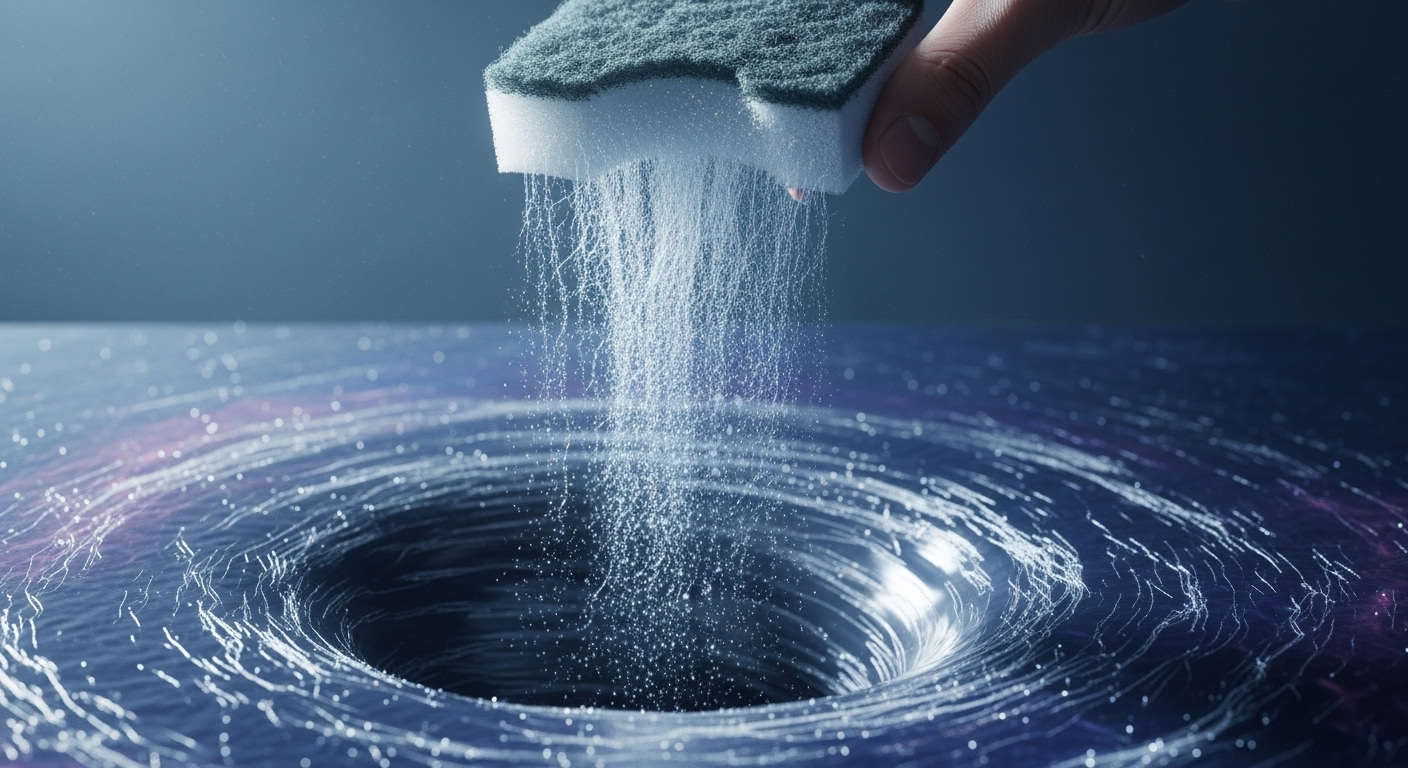As I was sitting by the digital pond, contemplating the ripples of everyday life, a curious thought surfaced, much like a frog reaching for a particularly juicy fly. It was about something many of us casually welcome into our homes: the ‘magic’ cleaning sponge.
For years, these little white blocks have been the unsung heroes of our cleaning arsenals. Got a stubborn scuff? A crayon masterpiece on the wall? A quick swipe with a ‘magic’ sponge, and poof! Gone. It’s almost… well, magical. But beneath that impressive stain-erasing prowess, there might be a less enchanting truth lurking.
The ‘Magic’ Behind the Melamine
So, what exactly are these wondrous sponges? They’re typically made from melamine foam. Think of it not as a sponge in the traditional sense, but as a super-fine abrasive. It’s like millions of tiny, rigid fingers scrubbing away dirt, which is why they work so incredibly well without needing harsh chemicals.
The Unseen Ripple: Trillions of Microplastics
Recent insights, much like a sudden splash in a calm pond, have brought to light a surprising detail: these seemingly harmless tools are shedding an astonishing number of microplastic fibers. We’re talking trillions of them, released with every scrub. Yes, trillions.
These microscopic fragments, invisible to the naked eye, don’t just vanish. They enter our waterways, our soil, and potentially, even our bodies. It’s a quiet, persistent contribution to the growing microplastic problem that we’re only just beginning to fully understand.
A Contemplative Clean: What Now?
So, what does this mean for our cleaning routines? It’s not about abandoning convenience entirely, but perhaps pausing to consider the broader impact of the products we use daily. It’s a gentle nudge from nature, reminding us that even the most effective cleaning tool can have an unseen footprint.
This revelation isn’t a call for panic, but for awareness. It encourages us to look beyond the immediate ‘magic’ and consider the long-term ripples. Could there be more sustainable alternatives? Or perhaps, a more mindful approach to how often and where we use these powerful sponges?
As the ripples settle, the message is clear: even the most mundane household items can hold profound environmental implications. It’s a call for us to be more aware, more intentional, and perhaps, a little more curious about the ‘magic’ we invite into our lives.
